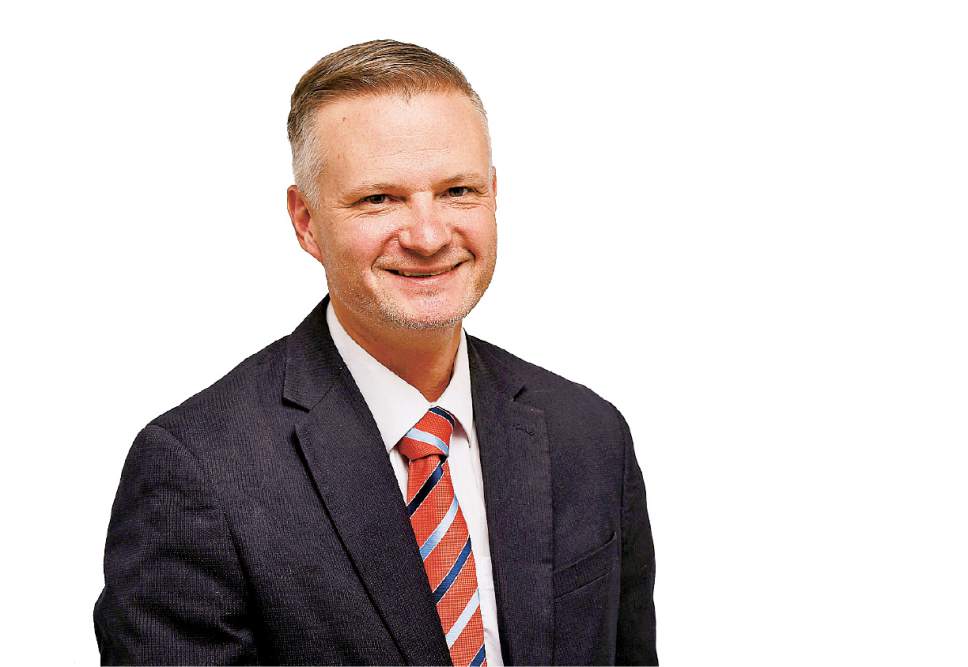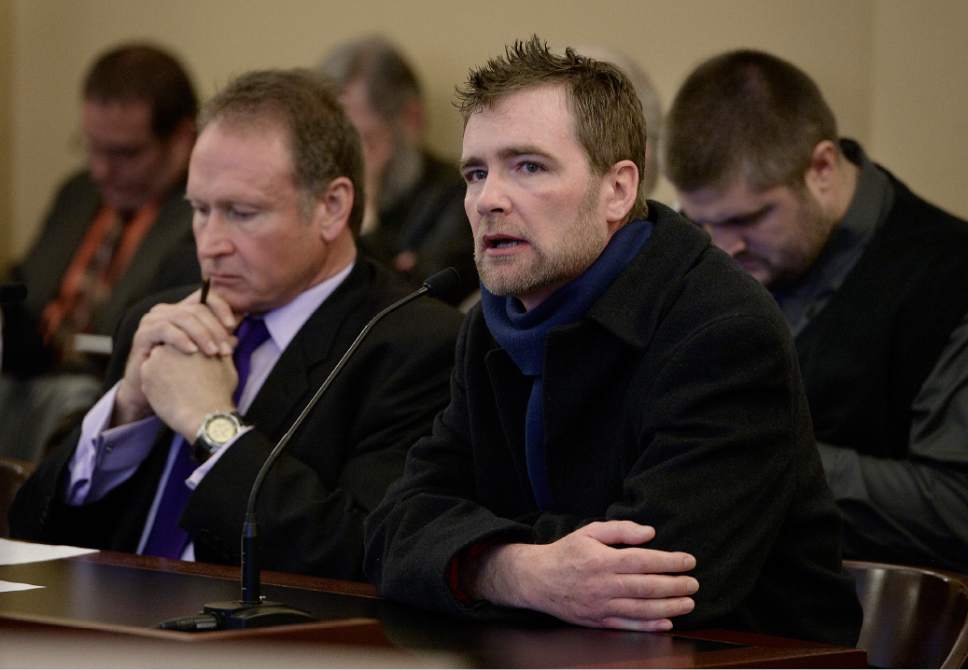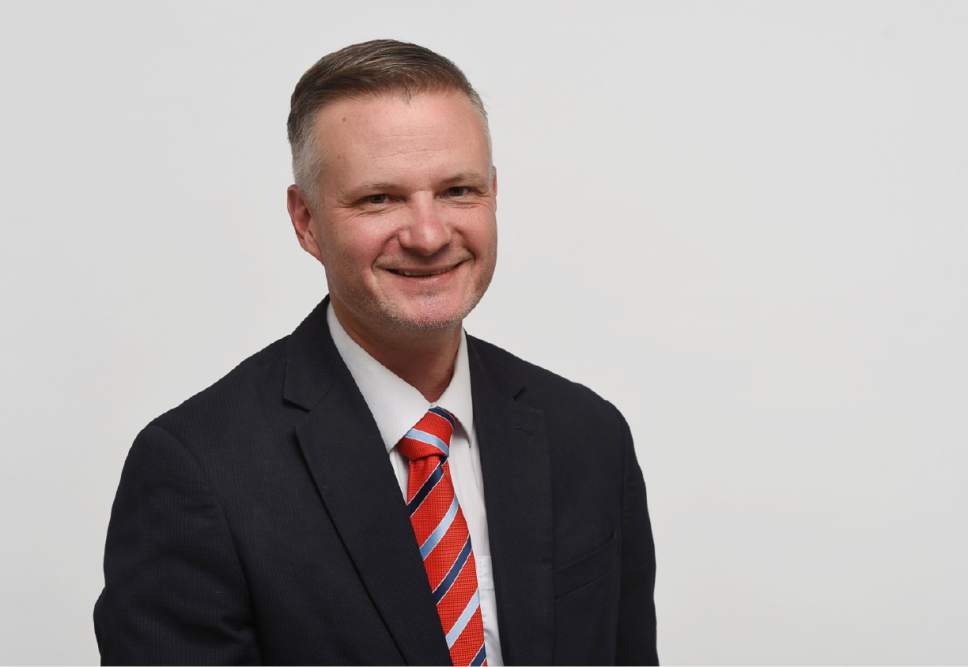This is an archived article that was published on sltrib.com in 2017, and information in the article may be outdated. It is provided only for personal research purposes and may not be reprinted.
My friend Forrest Shaw is dying.
He and I first met playing Junior Jazz basketball in elementary school, but I got to know him better in high school, an upbeat kid with positive energy and a smile and his quirky trademark line: "Remember to brush yer teeth and wash yer butt."
A couple years ago he was run down, hurting and having difficulty urinating, but he was young, 42 at the time, and looked relatively healthy, so doctors chalked it up to an infected prostate. Before a surgery they thought would fix the problem they discovered it was much worse. It was cancer that had already spread to his lymph nodes by the time it was detected.
"That's when I knew it was a death sentence," he told me this week.
Doctors bombarded him with radiation trying to control the tumors and put him on hormone therapy, essentially chemical castration, which he says was "devastating and shameful."
The pain was intense, he lost his appetite and was plagued by hot flashes and drenching sweat. He couldn't sleep and emotionally, he said, was plunged into "suffocating darkness."
Initially he was prescribed opiates, but he said his real relief came when he began using marijuana. It took the edge off the pain, allowed him to eat and sleep, and improved his mood.
Nobody pretends marijuana will save him, but it certainly isn't going to hurt him, either, and taking the drug has enabled Forrest to mark items off his bucket list and really live in the time he has left. In May he took his first trip to New York; and earlier he toured California wine country. He's started recording his political podcast again and is checking items off one at a time.
"I could breathe again," he says. "It really helped with my overall quality of life. I could get out of the house and see my friends and I wasn't just sitting there in an opiate daze all the time."
Now and then he would get his cannabis when he'd be visiting states that have legalized medical marijuana, but most of the time he has had to buy it on the black market.
"When you're trying to buy medicine through the black market, you really don't know what you're going to get," he says. "The potency is going to change every time you buy something. It's not regulated and metered. It's an insane way to get medicine."
He has pleaded with state lawmakers to make Utah one of a growing number of states to legalize medical marijuana. And he is not alone. We have heard story after story from people battling disease and living in unimaginable pain begging Utah lawmakers to give them a chance to use a drug they know works for them.
People like Maddie Campbell, barely in her teens and diagnosed with a rare disease that caused her muscles to contract, gave her seizures and made it impossible for her to walk or go to school. The same disease took her sister's life, but cannabis eased the constrictions and let her walk and finish school.
Or Enedina Stanger, the young mother of two who was arrested for using marijuana to ease the pain she suffers from an ailment that causes her bones to slip from their sockets and need to be re-connected. She had to move to Colorado so she could get the medical marijuana she needs.
And Brian Stoll, who broke his neck and back in a fall while he was a student at Brigham Young University and was prescribed fistfuls of opioids before he discovered he could get relief from medical marijuana without the damaging side effects and addiction risks.
And, except for taking the smallest of baby steps, lawmakers have responded with indifference and caved to fear.
On Monday, medical marijuana proponents, frustrated with the Legislature's unwillingness to take any meaningful steps to ease the suffering of hundreds of Utahns, will take matters into their own hands and file an initiative to put the legalization question on the 2018 ballot.
The language will be structured largely along the lines of a bill sponsored by Sen. Mark Madsen two years ago that House members defeated. If it passed, Utah would be the 30th state to legalize medical marijuana.
But it won't be easy. Even though polls have shown public support for the concept, we live in a time when U.S. Attorney General Jeff Sessions is urging Congress to give the Justice Department permission to prosecute marijuana distributors in states where it is legal.
And you can count on a well-funded opposition campaign based on misinformation and warnings that our children will get high and run wild.
These warnings ignore the recent study by Columbia University researchers that found that states that have legalized medical marijuana have not seen an increase in use by minors and some have even seen a decline.
They'll also ignore the study that says that states that have legalized medical marijuana have seen a 25 percent drop in opioid deaths. In Utah, which has one of the highest rates of opioid deaths in the nation, roughly 300 people die every year from overdoses, meaning changing the law could save as many as 75 lives — 25 times as many as might be saved from the recent lowering of Utah's DUI level.
"I think people in this state have a lot of compassion but they tend to just get too sidelined by the reefer madness propaganda that isn't real," Forrest said. "I think the ballot initiative is going to work. The people of Utah really seem to want it. It just seems to be our lawmakers who don't."
Forrest says he'll put as much time and energy into getting the initiative passed as he can.
In February, he stopped his hormone treatment. He has three new tumors growing in his pelvis, but his body can't withstand any more radiation and surgery is out because his tissue has deteriorated so badly they couldn't stitch him back together.
Chances are he won't make it to the end of the year. The change will come — if it comes — too late for my friend, but it could offer hope to countless others like him.
Twitter: @RobertGehrke
Editor's note: An earlier version of this story misstated a statistic about opioid deaths.







